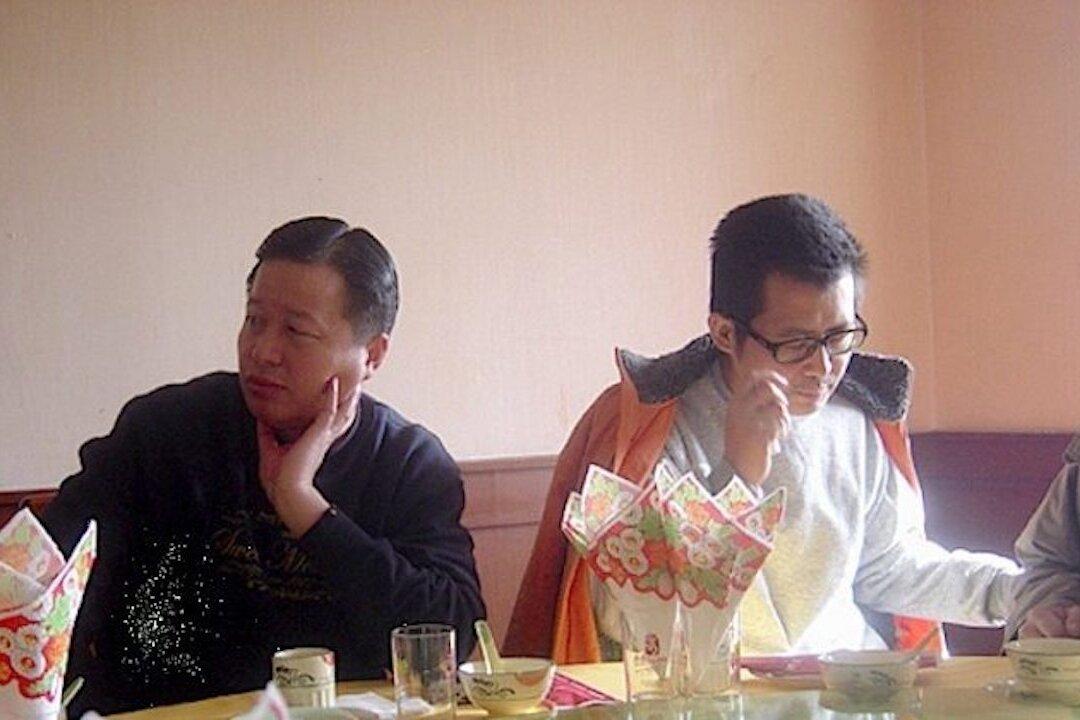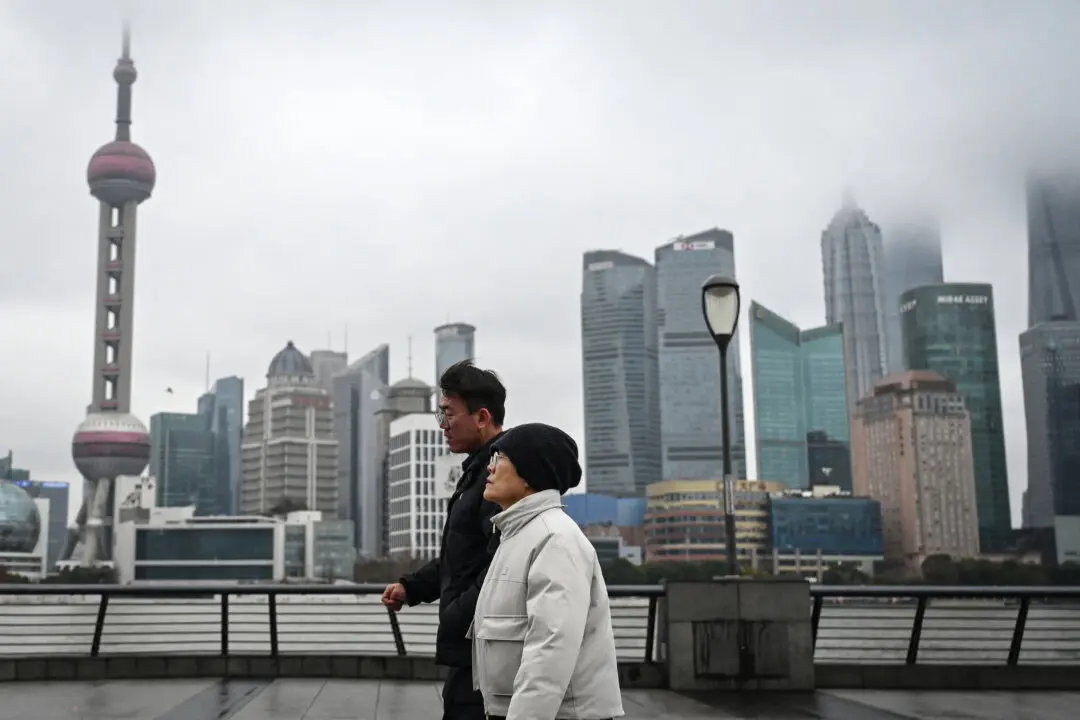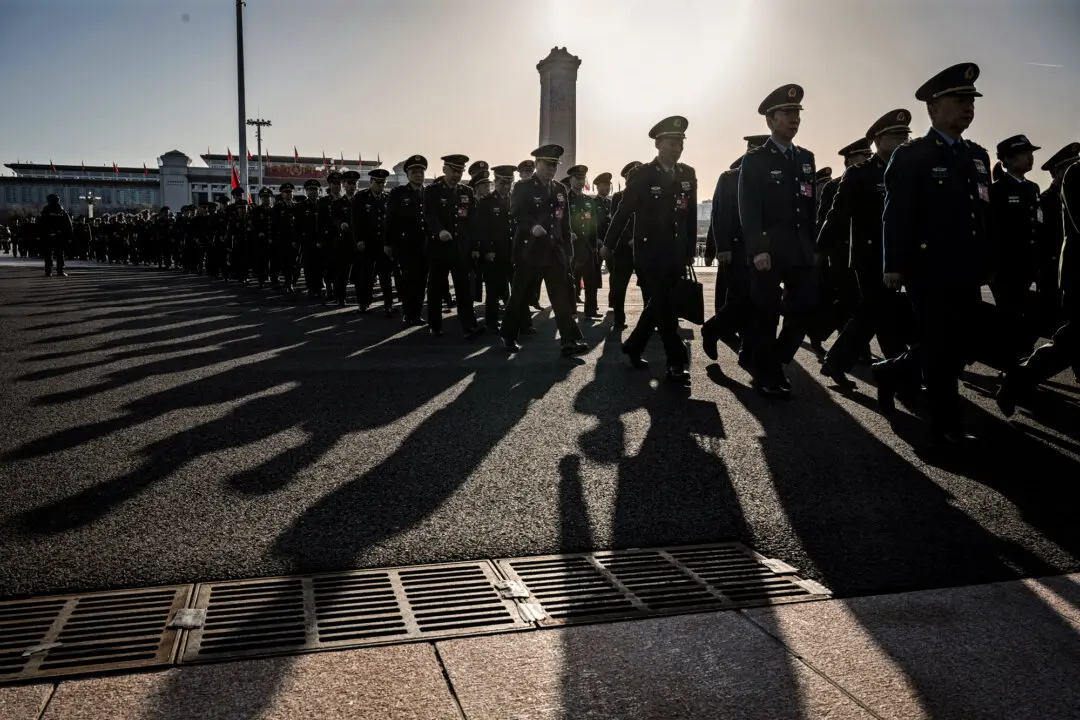Renowned Chinese rights activist Guo Feixiong was en route to Shanghai Pudong Airport on Jan. 28 when he was intercepted by Chinese police and prevented from travelling to the United States to care for his wife, who is about to undergo chemotherapy. Guo immediately announced that he would go on an indefinite hunger strike in a show of protest. However, after Guo was taken away by the authorities, he lost contact with the outside world.
Guo, 54, is a resident of Guangzhou, the capital city of Guangdong Province. On Jan. 28, he left Guangzhou for the United States so he could be with his wife, who needed urgent care after undergoing surgery for cancer treatment. But he was intercepted by authorities during a stopover at Shanghai Pudong Airport.
Overseas Chinese democracy activist Zhou Fengsuo relayed Guo’s message via Twitter on the evening of Jan. 28. “China Customs has officially announced that I will not be allowed to leave the country in the name of being ‘suspected of endangering national security.’ I will go on an indefinite hunger strike at [Shanghai] Pudong Airport from now on. Please call on the Chinese people, governments and people of the world to help me urgently,” Zhou tweeted.
Wang Dan, one of the leaders of the pro-democracy protesters during the 1989 Tiananmen Square Massacre, condemned the Chinese authorities for preventing Guo from visiting his wife. Wang posted on his Twitter account on Jan. 28: “The CCP is anti-human, which is infuriating.” He said that he is initiating a joint letter to be sent to international media outlets, the U.S. Congress, and the U.S. Department of State. He called on everybody to pay attention to the situation of Guo and his family.
Guo’s wife, Zhang Qing, has recently undergone a major operation for treating colon cancer and liver metastases, and is about to begin months of chemotherapy, VOA reported. Due to Guo’s persecution by Chinese authorities, Zhang left China and moved to the United States in 2009 with their two children.
Due to his activism and defending citizens’ rights, Guo served two prison sentences totaling 11 years: a five-year term for “illegal business operation” that ended on Sept. 12, 2011; and a six-year term for “gathering crowds to disrupt public places” and “picking quarrels and provoking trouble” that ended on Aug. 7, 2019, according to Chinese non-governmental organization Human Rights in China (HRIC).
Earlier this month, Guo wrote a letter to premier Li Keqiang and minister of public security Zhao Kezhi, calling on both of them to have his passport returned which had been held by the Guangzhou Public Security Bureau for the past ten years, and to allow him to go to the United States to care for his wife.
Due to Guo’s persistence and help from the U.S. consulate, Guo was able to get a visa and the local authorities in Guangzhou gave him permission to leave China before his new passport arrived, according to a report by Radio Free Asia (RFA). However, on Jan. 26, he was suddenly notified by Guangzhou Public Security Bureau that the China’s Ministry of Public Security imposed a travel ban.
Guo has defended the adherents of the spiritual practice Falun Gong and openly spoke against the persecution, which has continued since 1999 when former leader Jiang Zemin ordered a brutal suppression. Guo stated in 2006 that China’s persecution of Falun Gong was the largest and the most brutal at the time. He urged international organizations to go to the mainland to conduct a comprehensive investigation of the persecution of Falun Gong, and said that it is a top priority that could promote the rule of law in China.




